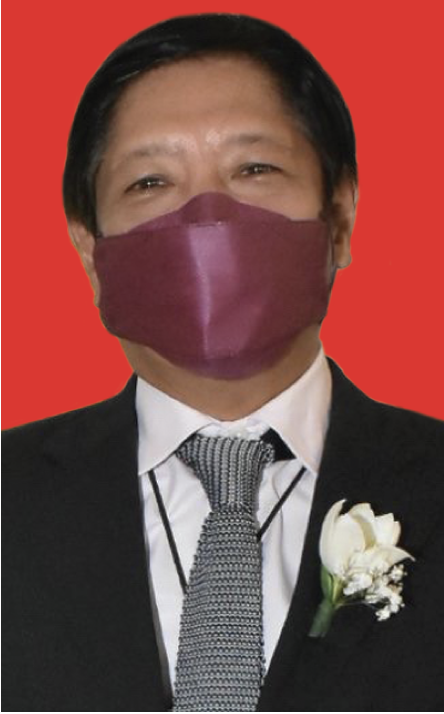By Alex Magno
Senator Bong Go cuts a pathetic figure on a political stage he has decided to vacate.
As anticipated in this space (Quitting, STAR Nov. 27, 2021), Go announced he is quitting the presidential race. In doing so, he has regained control over his life.
Last month, still a contender for the vice presidency, Go wept onstage as he contemplated the large forces and trends that took his fate captive. Sara Duterte had just decided to file as candidate for the second highest post.
Shortly thereafter, his principal goaded Go to reinstate himself as a presidential candidate. Since then, his life has been largely downhill.
Go’s bid for the presidency never enjoyed traction. No major powerbroker other than President Rodrigo Duterte celebrated his filing. No significant bloc of politicians rushed forward to endorse his candidacy. The preference surveys only gave him a tiny fraction of the vote.
It really did not matter if he quit or continued his lonely campaign. His presence or absence will not alter the larger trends. His minor voter base will not dramatically alter the dynamic of this contest.
Who Duterte will endorse after Go had quit will not matter either. His party has been hollowed out. His credibility has been shot. In a race that appears to have broken wide open, the numbers the sitting president might deliver do not really matter.
If this were a tight race, everyone will be waiting with bated breath who Duterte would endorse after Go left. The most eloquent statement that this is not a tight race is the fact that no one really cares who the sitting president will endorse. The value of that endorsement has plummeted because of Duterte’s own folly and the nature of the competition that developed.
Rodrigo Duterte is a man without a plan. Now he is a president without a candidate. He burned his bridges before he crossed them. He antagonized potential allies. Now he is alone.
Should Lakas-CMD be charitable, the party will adopt Duterte’s now solitary senatorial candidacy. Should Duterte not accept that small mercy, he will spend the next few months wandering in the margins of a great electoral battle.

Analysis of second-choice voter preferences indicates that Bongbong Marcos will be the biggest beneficiary of Go’s withdrawal. Analysis of first-choice voter preferences indicates that Marcos does not need Bong Go’s orphaned voters.
The numbers say he does not have to yield anything or even bother to negotiate to win Go’s stray votes. He just waits for them to come. It also means that Duterte the father has no leverage to negotiate anything. He is a lame duck waiting for his time to exit.
If Duterte the father has any self-respect, he should quit his senatorial candidacy as well. That will spare him the need to bargain for anything, especially with the new powerbrokers dominating this contest. He has managed to antagonize those powerbrokers.
All indications show that Bongbong Marcos enjoys great momentum in this contest – a fact establishment media seems to be downplaying. It is a phenomenon not easily fitting the neat logical categories of post-Edsa discourse.
From what the preference surveys are telling us, Bongbong’s gathering momentum dwarfs the scale of Erap Estrada’s lead in the run-up to the May 1998 elections. The outcome of that election saw the first crushing defeat of the forces identifying with the Edsa Revolution.
Furthermore, Estrada at that time relied on what we call “market votes.” His most viable rival, Jose de Venecia, relied heavily on the “command votes” eventually overwhelmed by voters jealously guarding their independence.
Today, Bongbong Marcos enjoys support from both “market” and “command” votes. That is a fusion difficult to break.
It is rather disappointing to see colleagues insist on analyzing present electoral dynamic from a top-down view. They imagine conspiracies of the powerful at play and dynasties at work, giving them larger credit than they deserve.
There is greater explanative power in analyzing from a bottom-up view. The masses moved first. The powerbrokers have no option but to move with them.
The “market” vote forced the hand of those who think they control the “command” votes. We know from 1998 that the “machineries” of the powerbrokers cannot counter the choices already made from below.
Therefore, it is better for local politicians to go with the current rather than fight it. The main reason these “dynasties” subsisted all these years is that they make the most practical decisions. They are not loonies lunging at windmills. They take the path of least resistance. They understand that in an electoral democracy, we count votes, not virtues.
In historiography, the fashion for years has been to look at history “from below.” That requires doing ethnography, understanding the beliefs and perceptions of people at the base of society.
I borrow the title of historian Teodoro Agoncillo’s classic on Philippine history. This present electoral contest will be better understood as a “revolt of the masses.”
I disagree with some of my colleagues in the discipline of political science that what is happening is part of the “erosion of democracy.” This is such an uncritical, utterly superficial application of western academic models.
How could masses of assertive independent voters articulating in the electoral terrain constitute “erosion of democracy?”
My colleagues, I fear, confuse the revival of old family names associated with authoritarian rule with the substance of independent voters seizing control of the nation’s fate from those who casually dismissed them as “bobotantes.”
— Philstar, Dec. 2, 2021
